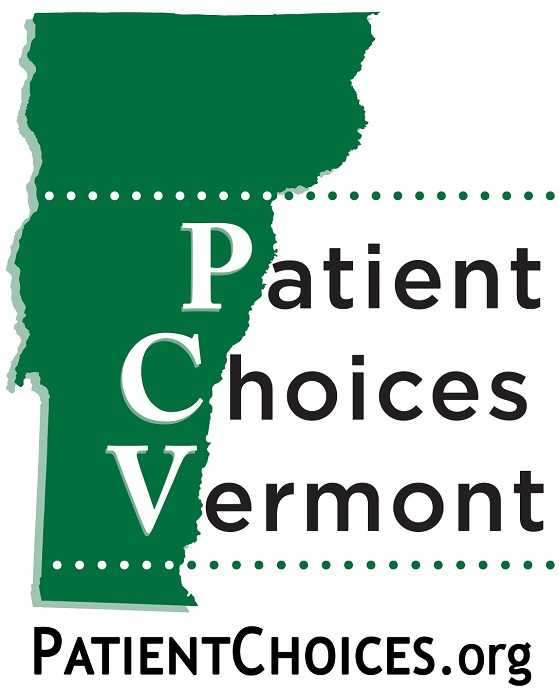
Medical Aid in Dying: The story of one man’s choice
Jan 28 at UVM’s Medical Education Pavillion
Learn about Medical Aid in Dying (MAID) at a panel discussion at 5 PM on January 28 at the University of Vermont’s Medical Education Pavilion, Larner Classroom, Room 100.
Medical Aid in Dying; The story of one man’s choice is a unique opportunity to hear the perspectives of both a family member and the physician attending a patient who chose MAID, which is now an option for more than 70 million Americans. The discussion, hosted by the Dana Medical Library and Patient Choices Vermont, will be led by Dr. Jaina Clough (Medical Director, UVM Home Health and Hospice). The panel will include: Peggy Stevens, sharing the story of her husband who voluntarily hastened his death under Vermont’s Act 39, the Patient Choice at End of Life law; Dr. James Boyd (UVM Neurologist), her husband’s physician, who will present his observations on the doctor-patient experience; and Dr. Tim Lahey (Director of Ethics, UVM Medical Center) who will discuss the clinicians’ duty to make sure that patients know of all their options and are able to make informed decisions.
“As a hospice physician, I was ambivalent about MAID when Vermont passed Act 39 in 2013,” says Dr. Jaina Clough. “Then, I met Debora, a 65-year-old woman with aggressive brain cancer, who had elected hospice immediately after her diagnosis. She had a deep clarity about herself and her illness. She understood that her illness would impact the elements of her life that mattered most to her: her cognition, her mobility, and most importantly, her independence. For Debora, the choice to take a medication to end her own life represented control and a path to a peaceful death. Learning from Debora changed my perspective on MAID.”
Vermont’s medical-aid-in-dying law allows a terminally ill patient with decision-making capacity to voluntarily end their life. As in all 10 states where it is legal, Vermont’s law defines careful criteria that must be met in order for a patient to receive MAID: A patient must voluntarily request MAID for a terminal illness, be informed of all of their treatment options (including palliative treatments), and must have decision making capacity. The physician’s role in this relationship, as in all patient relationships, remains to continually explore and respond to suffering, and to understand what matters most to a patient’s quality of life.
Please join in this unique opportunity to hear about one man’s choices at the end of life.
For more information on the event see the information below or contact Kate Bright to RSVP for this event. For more information on medical aid in dying, go to the Patient Choices Vermont Website.

